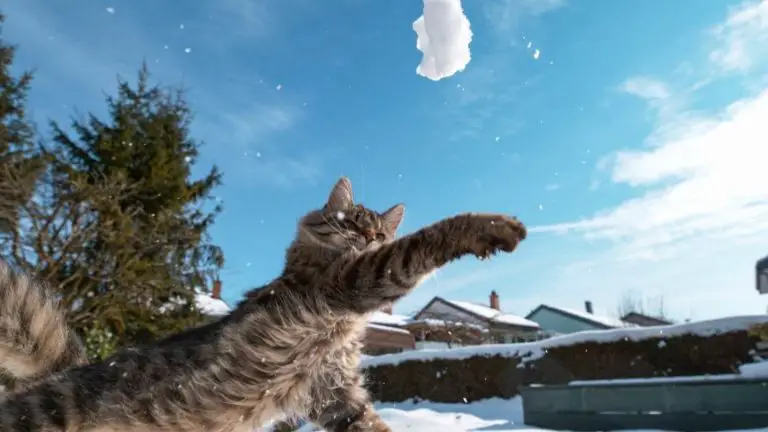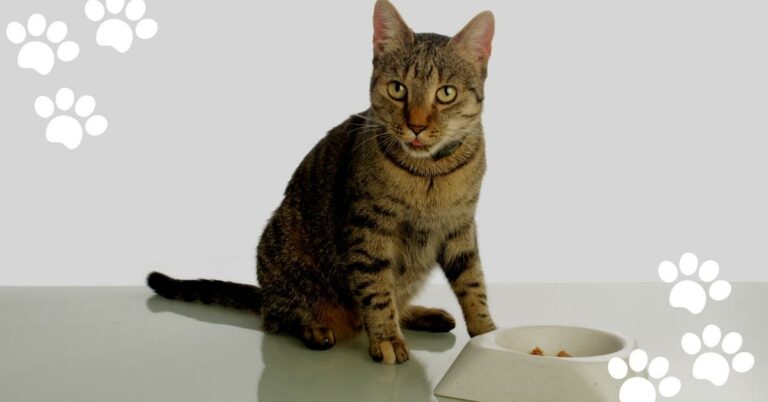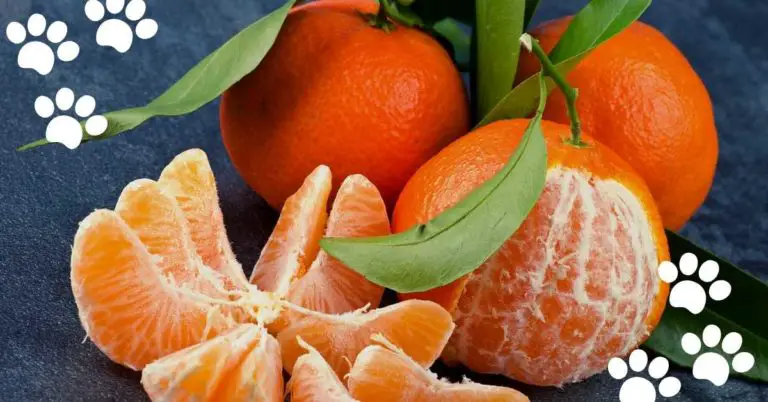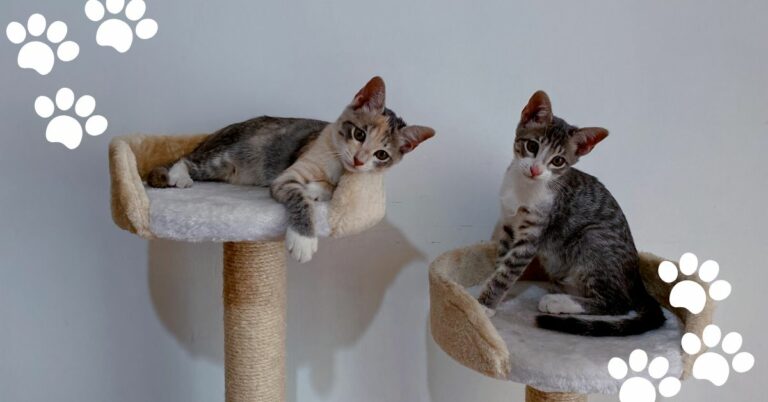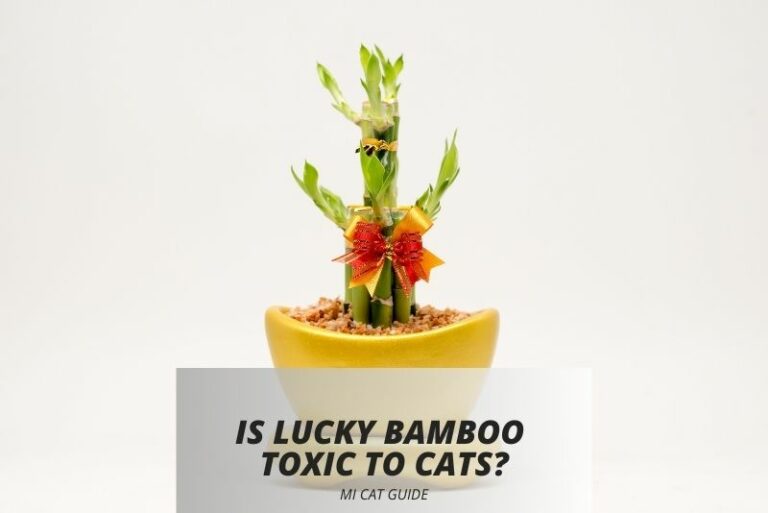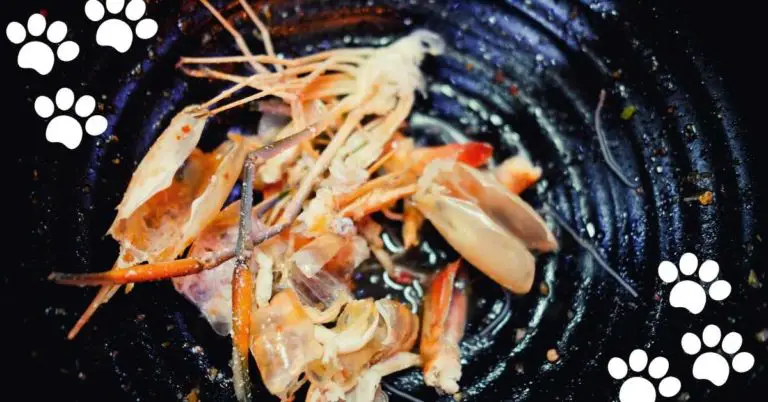Are Banana Trees Toxic to Cats? (My Experience)
No, banana trees are not toxic to cats. Banana trees, which are technically classified as herbaceous plants, contain non-toxic substances that do not pose any health risks for cats if ingested.
However, the leaves of a banana tree can be potentially hazardous if chewed or eaten by cats due to its sharp edges and tough texture. While there are no known toxins or poisonous substances in banana trees, the leaves may cause an upset stomach and gastrointestinal distress.
Here in this blog post, I’ll explore the specifics of why banana trees are not toxic to cats and provide some tips on how to keep your cat safe. Read on for more insights! Now that you understand the basics of banana tree safety for your furry companion, let’s delve into further detail.

Why Banana Trees are Safe for Cats?
Banana trees contain no toxic substances or ingredients that would cause harm if ingested by cats. The leaves and fruits of the banana tree are all considered safe to eat, although the leaves may be a bit harder for cats to digest.
Additionally, unlike other plants and shrubs, banana trees do not contain any substances that are known to be toxic or poisonous to cats. Therefore, it is generally safe for cats to consume banana tree leaves and fruits.
Banana Trees Safe Then Why Cats Should Not Eat Them?
Here I’ll explain why cats should not eat banana tree leaves and fruits, even though they are completely safe.
1. Leaves are Quite Sharp and Tough
From my childhood memories, I used to see cats chewing on banana tree leaves, but even though these leaves are non-toxic, they can cause an upset stomach and discomfort in cats due to their sharpness and toughness. Besides the sharpness, the leaves also contain an indigestible fiber that can lead to intestinal distress.
2. It Contains Pesticides
Banana trees, just like any other tree or plant, can be exposed to harmful pesticides and insecticides that can be poisonous to cats. Therefore, it is important to make sure that your banana tree does not contain any pesticide residues before letting your cat near it.
3. Cats May Eat Too Much
Cats are opportunistic eaters and if they find a tasty leaf or fruit on the ground, they may be tempted to devour it without considering their health. Therefore, it is important to limit their access to the banana tree in order to avoid any potential health risks.
My Cat Chewed on a Banana Tree Leaf, Is He Safe?
Yes, your cat should be safe if he chewed on a banana tree leaf. As previously mentioned, banana trees contain no toxic substances and the leaves are generally safe for cats to eat in small quantities. However, if your cat has consumed a large amount of banana tree leaves, it may be best to consult a veterinarian just to be sure.
Here I’m feeling that if I share one of my memorable experiences with the banana trees and cats, it may add more value to this blog post. So here I go:
Once when I was visiting my grandparent’s home, I noticed that there was a large banana tree in the backyard. We had several cats roaming in the garden and one of them decided to climb up the tree for some reason.
At first, I thought it would be dangerous for him as cats usually don’t climb trees but he seemed to enjoy himself! He spent hours playing around in the tree and even ended up eating some of the leaves. I was worried at first as I knew that banana trees weren’t toxic to cats but it seemed like he enjoyed them anyway! It was definitely an interesting experience to watch a cat enjoy something that we usually think is “not for them”.
So, if you’re wondering if it’s safe for your cats to nibble on banana tree leaves, the answer is yes. Just make sure that the trees are free from pesticides and that your cats don’t overeat the leaves.
Is Vomiting a Side-Effect of Eating Banana Trees For Cats?
Yes, vomiting is a potential side effect for cats that have eaten too much banana tree leaves or fruits. The leaves contain an indigestible fiber that can cause stomach upset and discomfort in cats, leading to vomiting or diarrhea.
If your cat has consumed a large amount of banana tree leaves, it is best to seek veterinary advice as soon as possible. Banana trees are generally safe for cats if ingested in moderation, but too much can lead to serious health issues.
How Can I Protect My Cats From Eating Banana Tree Leaves?
If you have a banana tree in your backyard and you want to ensure that your cats are safe, there are a few steps you can take.
1. Make Tree Unattractive to Cats
You can try making the banana tree less attractive to your cats by using an anti-scratching spray or a cinnamon-based solution. This will deter cats from wanting to climb the tree and will help you protect your cats from consuming leaves or fruits.
2. Limit Access to The Tree
I know it’s not always easy to keep cats away from the things they want, but you can try limiting their access to the tree. If you can manage to keep them away from the tree, it should be safe for your cats to eat any leaves or fruits that may have fallen from the tree.
3. Monitor Your Cats Closely
Finally, you should always monitor your cats closely when they are near the banana tree. If you notice that they are eating too much of the leaves or fruits, you should immediately take them away from the tree for their own safety.
Just Purchased a Banana Tree, What Should I Do?
If you have just purchased a banana tree for your home or garden, there are a few things you should do to ensure your cat’s safety.
1. Make Sure the Tree is Free From Chemicals
First thing first, make sure that the banana tree is free from any potentially toxic substances. If you are unsure of the origin of the tree, it is best to ask a professional to inspect the tree for any potential contaminants.
2. Ask the Store if the Tree is Safe for Cats
You should always ask the store if the tree you purchased is safe for cats before bringing it home. Some banana trees may contain pesticide residues that can be harmful to cats, so make sure you are aware of this risk before purchasing.
3. Don’t Allow Your Cats to Climb the Tree
Banana trees have large leaves that make them an attractive option for cats to climb, but it is best not to allow them to do so. As mentioned above, cats can easily consume too much of the leaves and fruits, leading to potential health complications.
4. Place the Tree in an Unreachable Area
Finally, if you are unable to monitor your cats closely when they are around the banana tree, it is best to place the tree in an area that your cats cannot access. This way, you can ensure the safety of your cats and still enjoy the benefits of having a banana tree in your home or garden.
My Final Thoughts
In conclusion, it is generally safe for cats to eat banana trees, as long as they are only eating a moderate amount of the leaves or fruits. However, it is important to be aware of the potential health risks associated with consuming too much of these items. You should also take steps to protect your cats from climbing and eating the tree, such as using an anti-scratching spray and monitoring them closely when they are near the tree.
Finally, if you have recently purchased a banana tree and are unsure of its safety for cats, it is best to ask a professional or keep the tree in an area that your cats cannot access. By doing so, you can ensure that your cats remain safe from any potential health risks.

